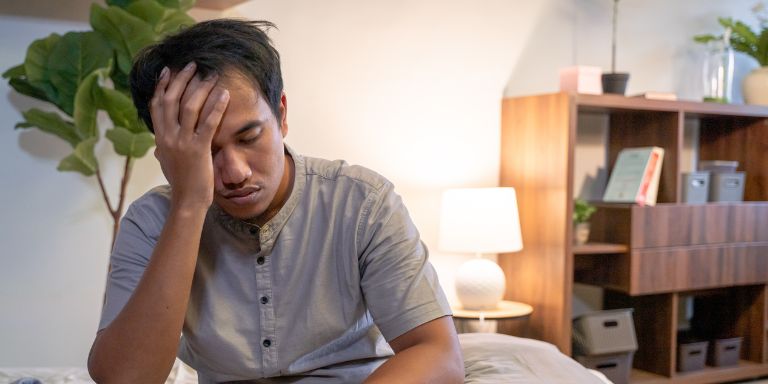Can Lack of Sleep Cause Hair Loss?

Sleep is often called the body's natural healer, but what happens when you don't get enough of it? Beyond making you feel groggy and irritable, lack of sleep can have serious implications for your health, including hair loss. Let's look into how sleep deprivation affects your hair and what you can do about it.
The Connection Between Sleep and Hair Health
Hair growth is a complex process influenced by several factors, including genetics, hormones, and overall health. One critical component of hair health is the sleep cycle. During deep sleep, the body goes into repair mode, regenerating cells and tissues, including hair follicles.
Stress and Hormonal Imbalance
Lack of sleep triggers stress, which in turn increases the production of cortisol, a hormone that can disrupt the hair growth cycle. Elevated cortisol levels can push hair follicles into the resting phase (telogen), leading to increased hair shedding and thinning. This condition is known as telogen effluvium.
Blood Circulation
Adequate sleep ensures proper blood flow to the scalp. Blood carries essential nutrients and oxygen to hair follicles, promoting healthy growth. Sleep deprivation can impair blood circulation, depriving hair follicles of the nourishment they need.
Use Cases and Real-Life Examples
Case Study: Sarah's Experience
Sarah, a 35-year-old marketing executive, began noticing significant hair thinning after a few months of sleep deprivation due to work stress. Upon consulting a dermatologist, she learned that her lack of sleep had led to increased stress levels, contributing to her hair loss. By improving her sleep habits and incorporating stress-reducing techniques, Sarah saw a notable improvement in her hair health.
Research Evidence
A study published in the journal Nature and Science of Sleep found a strong correlation between sleep quality and hair health. Participants who reported poor sleep quality had higher instances of hair shedding compared to those with adequate sleep.
Tips for Improving Sleep and Hair Health
- Establish a Routine: Go to bed and wake up at the same time every day to regulate your body's internal clock.
- Create a Sleep-Friendly Environment: Keep your bedroom dark, quiet, and cool. Consider using blackout curtains and white noise machines.
- Limit Screen Time: Avoid screens at least an hour before bed to reduce blue light exposure, which can interfere with your sleep cycle.
- Manage Stress: Use relaxation techniques such as meditation, yoga, or deep breathing exercises into your daily routine.
- Consider Supplements: Supplements like CBD oil can help improve sleep quality by promoting relaxation and reducing anxiety.
The Role of CBD Oil in Promoting Sleep
CBD oil, derived from the hemp plant, has gained popularity for its potential health benefits, including improved sleep. It interacts with the body's endocannabinoid system, which plays a role in regulating sleep, mood, and stress. By promoting relaxation and reducing anxiety, CBD oil can help you achieve better sleep, which in turn supports healthy hair growth.
Conclusion
While lack of sleep is not the sole cause of hair loss, it can significantly impact hair health by increasing stress levels and disrupting the hair growth cycle. Prioritizing good sleep hygiene and managing stress can help maintain healthy hair. For those seeking an additional boost, CBD oil offers a natural way to improve sleep and support hair growth.
For more information on our CBD oil and how it can help you achieve better sleep, visit our website at The Trost. Remember, a good night's sleep is not just a luxury—it's essential for your overall health and well-being.

Comments on this post (5)
Muchas gracias. ?Como puedo iniciar sesion?
— bxuksdyngt
PXTywdGsqoDOchS
— JomwUNEL
cMOsjurJQX
— gfAybOXYGPaoKqBJ
LcYKaNAHoTsvS
— bTPxOfasYCjdZgR
njeOLUByiphNdWEP
— KtUvSwTg